Blog
New Standards Bolster Rosacea Research
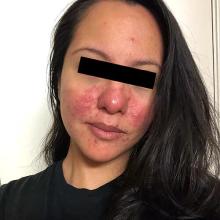
As a first step in a unique undertaking to boost rosacea research results by standardizing its study, a group of investigators including 63 experts from 17 countries as well as 25 rosacea patients have identified eight key aspects of the treatment or exp
Read More
New Study Shows How Skin Care Practices Differ Between Healthy and Rosacea Patients
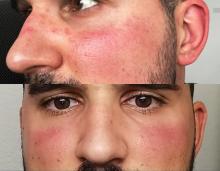
Noting the benefits of both skin care and medical therapy in treating rosacea, a recently published study compared the skin care pra
Read More
While Rosacea Awareness Grows, Treatments Need More Attention

A recent National Rosacea Society (NRS) survey found that 65% of rosacea sufferers were aware of the disease before their diagnosis. However, that percentage varied depending on how long ago diagnosis occurred.
Read More
Vitamins and Minerals May Play a Role in Rosacea Therapy

Many people use vitamins, minerals and other nutrients to supplement their diet and address a broad range of ailments. But can they help with rosacea signs and symptoms?
Read More
National Rosacea Society Launches ‘Rosacea Research Digest’ Newsletter

The National Rosacea Society (NRS) announced today the launch of the Rosacea Research Digest, a monthly email newsletter highlighting the latest research and news on rosacea. To subscribe, visit rosacea.org/researchdigest.
Read More
How to Choose the Right Sunscreen for Rosacea Skin
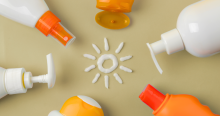
Sunscreen is an essential component of every rosacea management routine, as sun exposure is the #1 reported rosacea trigger.
Read More
New Study Estimates Rosacea’s Worldwide Prevalence

A new study on the global epidemiology of rosacea and acne offers a new estimate of how many people may have rosacea worldwide.1
Read More
Q&A with Lex Gillies
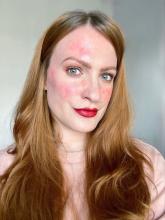
During Rosacea Awareness Month 2024 we were honored to partner with Lex Gillies, rosacea social media influencer, to provide actionable information f
Read More
New Products Earn NRS Seal of Acceptance

The collection of skin care and cosmetic products that have earned the NRS Seal of Acceptance is growing, indicating they are suitable for use on sensitive rosacea skin.
Read More
Rosacea Awareness Month Highlights Skin Care as New Frontier Against Life-disruptive Disorder Affecting 16 Million Americans

While rosacea sufferers can benefit from prescription medications and procedures to treat the full spectrum of potential signs and symptoms, a growing range of over-the-counter (OTC) skin care products is now available to help achieve optimal results.
Read More
Treatments for Seborrheic Dermatitis and Rosacea Discussed at AAD Annual Meeting

Medical therapy for seborrheic dermatitis (SD) and rosacea, skin disorders that frequently occur together in patients, was discussed at the recent American Academy of Dermatology annual meeting in San Diego.
Read More
Rosacea-Related Behaviors That Could Sabotage Your Social Life

It is well documented that rosacea, along with other skin conditions, can result in a diminished quality of life in terms of social outcomes.
Read More
Rosacea Awareness Month to Highlight Importance of Skin Care in Rosacea Treatment

While rosacea sufferers enjoy a wider range of therapeutic options than ever before, without proper skin care they may not get the most out of treatment, dermatologists warn.
Read More
Study Delves Deeper into Rosacea and Headaches
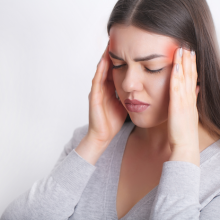
A recent study in Turkey examined the relationship between rosacea and headaches, and found that different types of headaches were significantly associated with certain presentations of rosacea, and that those with moderate or severe rosacea were more likely to experience headaches.
Read More
National Rosacea Society Launches New Seal of Acceptance for Skin Care and Cosmetic Products

For the first time, consumers shopping for skin care products and cosmetics that are suitable for people who suffer from rosacea — a chronic red-faced skin disorder affecting 1 in 20 Americans that is often characterized by flare-ups and remissions — will be able to look for a Seal of Acceptance from the National Rosacea So
Read More
New Study Finds IBD May Lead to Rosacea

For the first time, a new study from China shows that the presence of inflammatory bowel disease (IBD), a well-known comorbidity of rosacea, as well as its subtypes, Crohn’s disease (CD) and ulcerative colitis (UC), may lead to rosacea, according to the report published in the scientific journal Nature Scientific
Read More
National Rosacea Society Awards 2023 Grants for Rosacea Research

The National Rosacea Society (NRS) has awarded funding for one new study, in addition to continuing support for two ongoing studies, as part of its research grants program to increase knowledge and understanding of the potential causes and other key aspects of rosacea that m
Read More
Are Sugary Sweets a Treat or Trick for Rosacea Sufferers?

The biggest candy buying holiday of the year, Halloween, is around the corner. The National Retail Federation estimates that Americans will spend $3.6 billion on Halloween candy in 2023.
Read More
New Research Shows Potential Pathway from Demodex Mites to Flare-ups
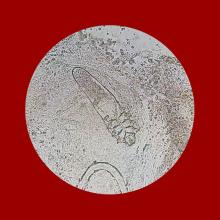
Are they a cause or simply a coincidence? Demodex mites have long been a conundrum for rosacea patients. Unlike other environmental triggers, they are unavoidable, as they are normal inhabitants of facial skin,1 but they do exist in greater numbers on the skin of individuals with rosacea.2,3
Read More
Depression and Anxiety from Rosacea May Not be Caused by Appearance Alone

The biological interplay among rosacea, depression and anxiety may offer important opportunities for improved treatment and prevention of all three disorders, according to a recent meta-analysis published in the medical journal Clinical, Cosmetic and Investigational Dermatology.
Read More
Elevate Your Dermatologic Knowledge at Winter Clinical Miami!

Sponsored post The following announcement is sponsored by Dermsquared. The second annual Winter Clinical Miami conference is a 4-day event that promises healthcare professionals an innovative education experience covering medical, surgical, and aesthetic dermatology.
Read More
Rosacea Potentially Linked to Eye Diseases
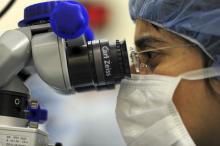
Editor's Note: It’s important to note that findings of comorbidity studies like this one only suggest a potential association. To determine any cause and effect relationship, further study is required.
Read More
Survey Shows Insurance Covers Rosacea Medication, But Not Laser Treatments

A new National Rosacea Society (NRS) survey found that prescription rosacea medication continues to be a covered expense for most patients, but there’s little appetite from insurance companies to cover laser treatments.
Read More
Habit Hack Your Way to Better Skin

Managing rosacea can seem like a daunting task sometimes. Between finding a skin care routine that works, using prescriptions and avoiding triggers it can feel like a lot.
Read More
New Research Explains Why Hot Peppers Cause Flare-Ups

Chili peppers are famously spicy, which is a draw for many people but a reason to avoid them if you have rosacea. In an NRS survey on spicy foods, 62% of respondents said hot peppers caused flare-ups.
Read More